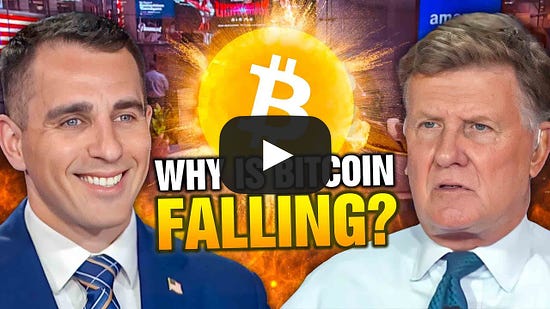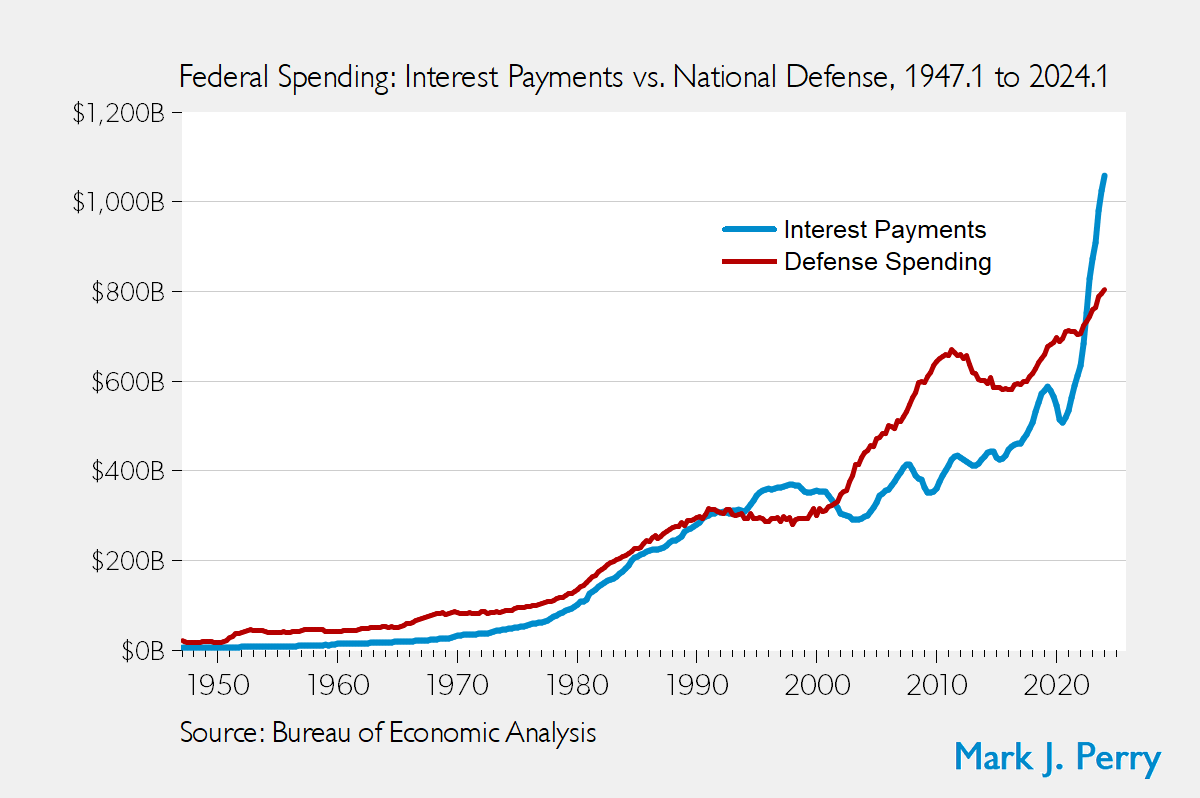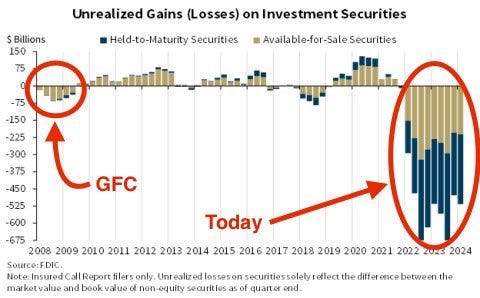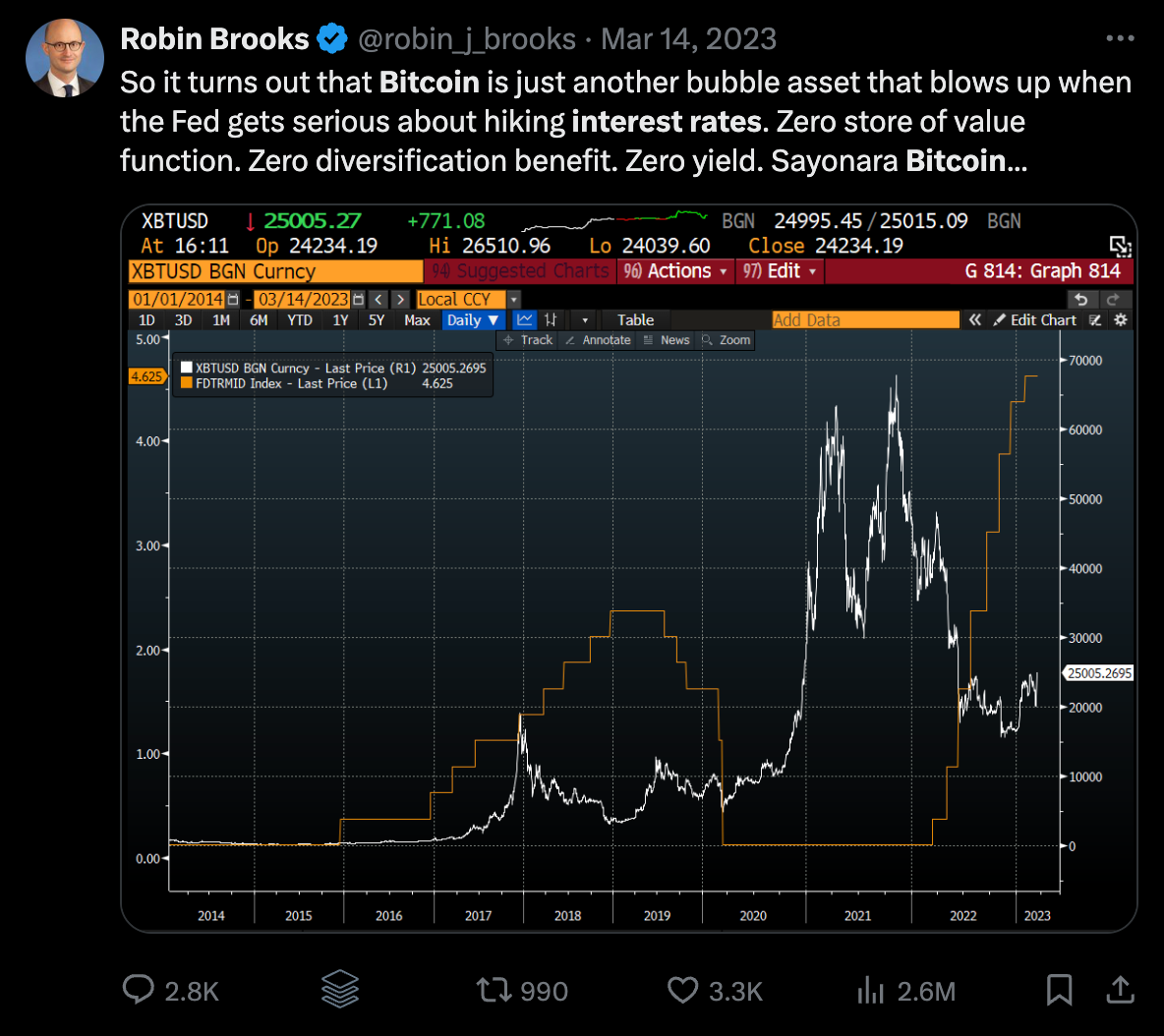|
To investors,
Carlyle Group’s David Rubenstein told CNBC’s Andrew Ross Sorkin yesterday he believes the Fed will hold off on cutting interest rates until after the Presidential election in November.
Rubenstein’s logic is as follows:
“Generally the Fed wants to stay out of politics. I’ve always said that I think the Fed is not likely to cut rates before the election because it would just cause too much political turmoil.”
While the Fed staying out of politics sounds like a good idea, there is a much bigger problem already underway — the Fed’s refusal to cut interest rates has created a significant expense for the US government.
Annualized interest payments on the national debt are now more than $200 billion more than total defense spending, according to economics professor Mark J Perry.
So what is the argument for the Fed to cut interest rates now? Jim Parrott of Parrott Ryan Advisors and Mark Zandi, chief economist of Moody’s Analytics, wrote an op-ed in the Washington Post earlier this month where they laid out the following argument:
“It’s time for the Federal Reserve to declare victory in its war on inflation and cut interest rates.
The Fed’s aggressive rate hikes have helped cool inflation, but its insistence on keeping rates higher for longer is based on a serious misjudgment of the role the cost of owning a home plays in inflation and threatens to do unnecessary harm to the economy…
…The economy has weathered the Fed’s higher-for-longer strategy admirably well, but there is a mounting threat that the ongoing pressure will expose fault lines in the financial system. As last year’s banking crisis showed, the relentless strain of high rates can cause parts of the financial system to buckle in ways that are difficult to predict and control.
The job market also appears increasingly fragile, as businesses have pulled back on hiring, cut employees’ hours and are using fewer temp workers. They have been loath to lay off workers, but that could quickly give way under the increasingly heavy weight of high interest rates.
There is no reason to take these risks for the sake of hitting a flawed inflation target. Better for the Fed to recognize its hard-fought win against inflation and begin, finally, to cut interest rates.”
This brings me to the negative impact on banks if the Fed doesn’t cut interest rates. According to Red Pill Rick (yes, that is his Twitter handle), the banks are already in serious trouble with the unrealized losses on securities they currently hold.
The Fed told everyone for two years that interest rates would stay artificially low for years to come. They obviously went against that guidance in 2022 until today. By cutting interest rates, they could potentially soften the blow for these banks and prevent future bank failures.
Lastly, interest rates were blamed as the culprit for bitcoin’s falling price throughout 2022 and 2023. Take Robin Brooks, a Senior Fellow at the Brookings Institute, as a prime example. Here is his tweet from March 14, 2023 when interest rates were sub-5%.
Since this tweet, interest rates continued to go up, yet bitcoin has more than doubled in price over approximately 15 months.
I guess it becomes difficult to argue that bitcoin is “just another bubble asset that blows up when the Fed gets serious about hiking interest rates” when the asset returns to all-time highs despite the higher interest rates.
But don’t get confused — bitcoin would benefit greatly if the Fed was to cut interest rates. So would many financial assets. This would make investors happy, but potentially could lead to more inflationary pressure across the economy.
As I have long argued, the Fed is in a tough position. They are not merely managing monetary policy, but rather have to take politics and financial markets into account as well. They are trying to use backwards looking data to make decisions today based on what they predict will happen in the future.
It is an impossible job. Lose-lose. That won’t stop people from speculating on what the central bankers will do next though.
Hope you all have a great day. I’ll talk to everyone tomorrow.
-Anthony Pompliano
Phil Rosen, the Co-Founder of Opening Bell Daily, interviews Anthony Pompliano. Topics include stablecoins, US debt, interest rates, and geopolitics.
Listen on iTunes: Click here
Listen on Spotify: Click here
My CNBC Appearance Yesterday - Why Bitcoin’s Price Is Falling

Podcast Sponsors
Meanwhile is the world’s first licensed and regulated life insurance company built for the Bitcoin economy.
iTrustCapital allows you to buy and sell cryptocurrency in a tax-advantaged crypto IRA. Open and fund an account today to receive a $100 USD funding bonus.
Supra - Join Supra’s early integration program for zero-cost access to the fastest oracles and dVRF across 50+ blockchains.
BetOnline - Use crypto to bet on sports, casino games, horse racing, poker and more with promo code POMP100.
Espresso Displays - The world's thinnest touchscreen portable monitor. Expand your workspace and work from anywhere.
CrossFi is the Apple Pay for Crypto. For the first time in history, anyone with a web 3 wallet can spend crypto through a physical or virtual Visa card where Visa is accepted.
ResiClub - Your data-driven gateway to the US housing market.
Opening Bell Daily - Get the 5-minute newsletter that Wall Street reads.
You are receiving The Pomp Letter because you either signed up or you attended one of the events that I spoke at. Feel free to unsubscribe if you aren’t finding this valuable. Nothing in this email is intended to serve as financial advice. Do your own research.
You're currently a free subscriber to The Pomp Letter. For the full experience, upgrade your subscription.




